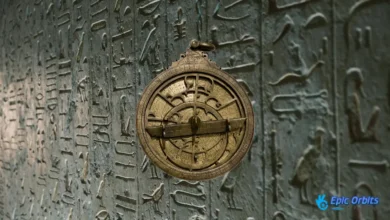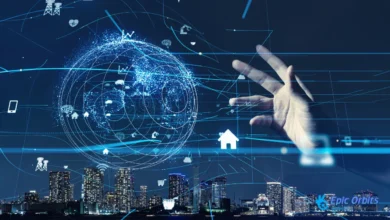How Key Historical Events Shaped Modern Civilization
Discover how pivotal moments in history shaped modern civilization. Explore the key events that influenced your world today.
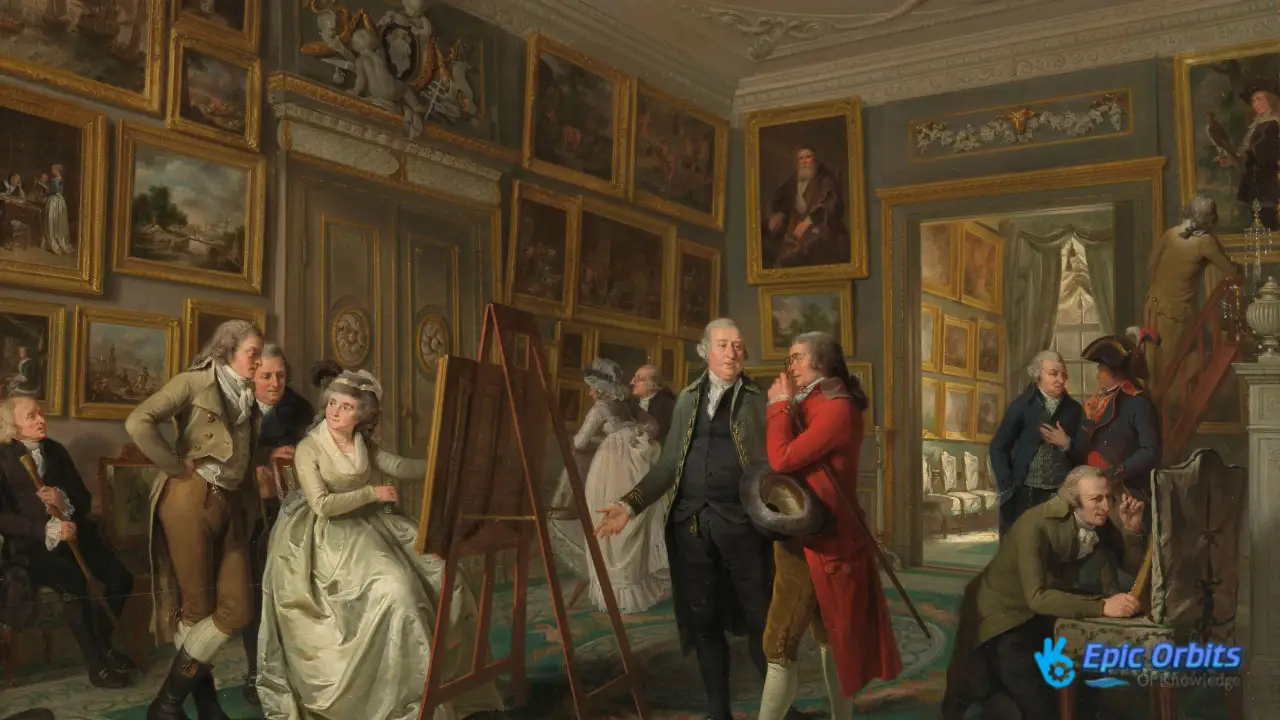
Thousands of years of human progress have shaped the world you live in, making it both familiar and strange. Since ancient times, people have been fascinated by the concept of a society falling apart. This theme has impacted almost all major organized religions.
You are living in the ripple effects of choices, new ideas, and disasters that occurred hundreds or even thousands of years ago, from the earliest farming communities to the digital world we live in today. The tale of how we got here isn’t simply fascinating facts; it tells you why things are the way they are.
The Beginning of Civilization: From Nomads to Cities
The change from wandering tribes to city inhabitants in ancient times is where your grasp of today’s complicated cultures begins. This change was crucial for the development of civilization as you know it. The transition from hunter-gatherers to urban settlers signified the beginning of a new epoch in human history.
1. The Agricultural Revolution and What It Changed
The start of farming changed everything for human growth. People were able to stay in one area because they grew crops and tamed animals. This process led to the establishment of permanent communities. This change in farming made it possible to grow more food than needed, which in turn made it possible to sustain people who didn’t work in agriculture, such as merchants and artisans. This was the beginning of civilization.
As farming became better, it helped civilizations expand in many parts of the world. Civilizations initially arose in Mesopotamia, then in Egypt, and finally flourished in the Indus Valley, China, and Central America. These civilizations were all farming-based, but each had its own unique traits.
2. The First Cities in Mesopotamia
People commonly call Mesopotamia, the area between the Tigris and Euphrates rivers, the “cradle of civilization.” Here, people built some of the first cities, such as Uruk and Ur. These cities were more than simply big groups of people; they were complicated social experiments with specialized jobs, places of worship, and early forms of government.
- When these cities grew, they came up with the first real estate markets, tax collecting systems, and city planning projects. These are all still important issues and answers today.
- The term “neighbors” came around to describe individuals who lived near to each other but weren’t related and shared resources and duties.
- These early Mesopotamian villages were the first examples of what would become urban centers, and they had a big impact on how civilization developed.
The rise of civilizations on all continents save Antarctica highlights the global allure and necessity of urban existence. When you consider the history of civilization, it’s evident that building cities was an important part of how human civilizations changed throughout time.
Writing Systems: How Communication Changed Human Society
Writing systems revolutionized human civilization by enabling the recording of laws, economic transactions, and cultural heritage. You can see how this revolution changed things in the complicated cultures that came after it. The capacity to write things down led to the creation of more advanced systems of government, commerce networks, and cultural exchange.
Cuneiform and hieroglyphics were the earliest written languages. They came about in ancient civilizations and marked the start of a new era in communication. The Sumerians in Mesopotamia created cuneiform, while the ancient Egyptians utilized hieroglyphics. At first, both systems were intended to preserve records and tell stories. These early writing systems were challenging to use and needed particular expertise, but they led to the creation of better ways to write.
- Written records made it easier to keep track of commerce, taxes, and laws, which helped society become more complicated.
- Over time, writing systems improved, allowing more people to read and write, which in turn spread knowledge and literature more widely.
Writing made it possible to build more complicated systems of government since rulers could now write down laws, orders, and property rights. This, in turn, made it easier for trade networks to grow since merchants could keep track of deals and transactions. The accumulation of information over generations also became feasible, which sped up innovation and cultural growth.
- Writing enabled the documentation of laws, transforming government from arbitrary rule to systems based on clear regulations.
- The capacity to keep track of trade deals and transactions helped global trade develop.
- The gathering of information in recorded form led to the creation of increasingly advanced technology and cultural activities.
The Rise and Fall of Old Empires
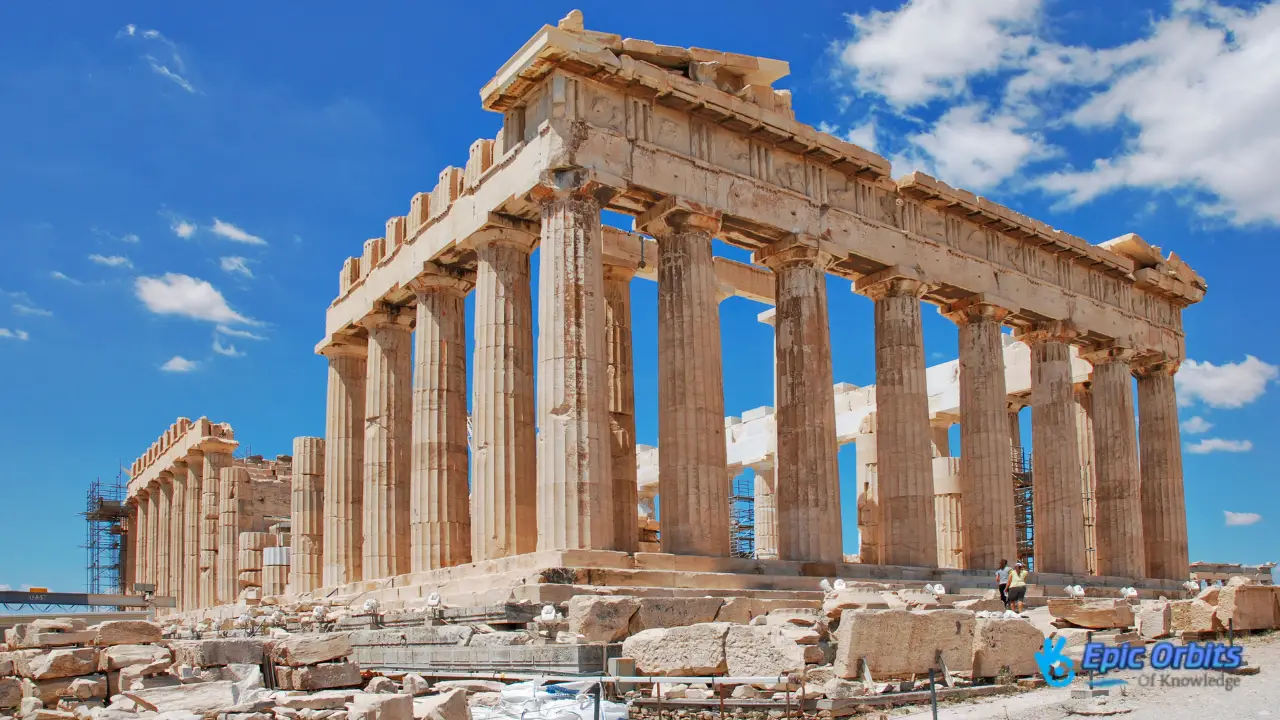
You may be surprised by how ancient civilizations’ legacies still affect you and the world. The emergence and collapse of these civilizations have had a profound impact on the path of human history, changing everything from culture and government to technology and commerce.
1. The Roman Empire’s Lasting Legacy
The Roman Empire left a profound mark on modern civilization through its vast territory and advanced governance. Its political system introduced the concept of a republic, where citizens elect representatives to make decisions—a principle that continues to influence today’s democratic governments. Roman contributions to law are equally significant, with the Twelve Tables and Justinian’s Code serving as the foundation for many modern legal systems.
In architecture, Romans pioneered the use of arches, domes, and concrete, innovations that continue to inspire building designs around the world. These legacies demonstrate how Roman governance, law, and engineering still shape contemporary society.
2. New ideas from ancient China
As Rome grew, ancient China came up with new ideas that would change the globe. These inventions changed both Eastern and Western society in big ways, from paper and printing to gunpowder and the compass. The Chinese invented the silk in your garments, the porcelain in your china cabinet, and the tea you drink in the morning. These things spread down the Silk Road.
- China’s civil service test system, which has existed for over 1,400 years, created the world’s first merit-based government.
- The idea of a single state covering a lot of land served as a model for later empires, which shaped the civilization you live in now.
- You may see the immediate effects of Chinese inventions when you use paper money, use a compass, or watch fireworks.
The Chinese idea of a united state had an effect on all the great civilizations that came after it.
The growth of these old civilizations shows how complicated and rich human culture is, as well as how interrelated our planet is. The Silk Road, for example, made it possible for people to trade products and ideas across large distances, which helped spread technology and cultural practices and made the cultures of the civilizations who participated richer.
Religious Revolutions That Changed Society
Religious revolutions have had a tremendous influence on society throughout history, changing culture and ways of thinking. When you look at how civilizations have changed throughout time, it’s evident that changes in religion and philosophy have had a big impact on how society is now.
1. Changing cultural values via religions that believe in one god
Christianity, Islam, and Judaism are all monotheistic faiths that have changed cultures in big ways. For example, during the Islamic Golden Age, the common language and numbers helped the Arabic world make progress, leading to amazing discoveries in science, technology, and the arts. This time not only showed how strong a united religious and cultural identity can be, but it also showed how different cultures can work together and learn from each other.
Abrahamic religions have had an impact on the legal systems, moral codes, and social conventions of Western societies. You can see how these faiths have affected society in the art, literature, and architecture that still shape modern life.
2. The Significant Influence of Eastern Philosophical Traditions
Monotheistic religions were shaping Western culture, while Eastern intellectual traditions like Buddhism, Hinduism, Confucianism, and Taoism were coming up with completely other ways to think about what it means to be human. Your current ideas about being aware of everything, how everything is interrelated, and how to live in harmony with nature instead of trying to control it are not new ideas from the New Age; they are old ideas from the East that are now making their way into Western thought.
- Confucianism’s focus on social peace, respect for education, and meritocracy led to the creation of social institutions in East Asia that put stability and the common benefit ahead of individual rights. This represents an entirely unique approach to developing a civilization compared to the Western model.
- The Buddhist idea of non-attachment and the Hindu idea of cyclical time are two ways of looking at the universe that are different from the linear, progress-oriented way that most people in the West think.
- When you do yoga, meditate, or believe in ideas like karma, you are participating in the continuing flow of ideas between Eastern and Western intellectual traditions that is changing the world.
This interaction of cultures shows how society is constantly changing, with different religious and philosophical traditions affecting one another and making the world a more fascinating and complex place.
The Dark Ages: Not as Dark as You Thought
People sometimes think that the gloomy ages were quite gloomy, but they weren’t. They were a period of preservation and creativity that led to the rise of modern civilization. You may be surprised to learn that this period, from the 5th to the 10th century, was vital to the foundations of many things in your world.
1. Keeping Knowledge Safe in the Middle Ages
Monks and academics worked hard to duplicate manuscripts throughout the Middle Ages. This kept the knowledge of previous civilizations alive. The gradual process ensured the preservation of ancient works on philosophy, medicine, and astronomy. We owe a great deal to these diligent individuals who contributed to the preservation of knowledge during a period of war and turmoil in much of Europe.
The founding of monasteries and convents as places of study was also crucial for keeping knowledge alive. Not only did these places house libraries filled with old books, but they also provided a secure environment for academics to study and interpret these works. Because of this, the intellectual accomplishments of ancient Greece and Rome were kept for future centuries, which had an effect on how your contemporary world grew.
2. How New Ideas from the Middle Ages Made Modern Progress Possible
The medieval era was also a time of great new ideas that helped shape many of the technical, economic, and social changes that make up your contemporary society. For example, the ideas of credit and international finance that make up your current banking system come from Italian city-states like Venice and Florence in the Middle Ages. These new ideas made it feasible for the economy to grow, which would lead to the Renaissance.
- During this time, the mechanical clock was developed. It changed how people thought about time, leading to the strict schedules and awareness of time that are common in contemporary professional life.
- You know that universities today have degrees, faculties, and academic freedom. They were invented in the Middle Ages to create institutions that would keep and spread knowledge.
- Gothic architecture was a revolutionary new way to build things that addressed structural difficulties and opened up new possibilities for creation.
- Medieval guilds initiated the apprenticeship system, professional standards, and quality controls that we have today. We now refer to these things as professional certificates, industry laws, and labor organizations.
These and other new ideas show that the Dark Ages were not a time of stagnation but rather a time of enormous growth that set the stage for the rise of contemporary civilization. This time was key in shaping your world, as you can see when you look back.
The Renaissance: A New Beginning for the Arts and Sciences

The Renaissance was more than simply a cultural movement; it was a revolution that changed how you saw art, architecture, and even the world around you. From the 14th to the 17th century, this time signified a big departure from medieval customs. It was a time when ancient antiquity was brought back to life, and it changed Western culture forever.
1. Changing How People See Things
The Renaissance didn’t simply make beautiful art; it also changed how people communicated visually by coming up with new methods like linear perspective and anatomical correctness. These new ideas, which can be seen in works like Michelangelo’s David and Leonardo’s Mona Lisa, not only changed the way things looked, but they also changed the way you see the world today. For instance, artists were able to create a feeling of depth and realism that was previously impossible by using linear perspective. These innovations changed the way you see and interact with pictures.
Renaissance thought had a big effect on how people saw the world. The Renaissance promoted a more sophisticated understanding of the human experience by revitalizing classical knowledge and adopting humanism. This change in perspective affected not just art but also science, literature, and philosophy, setting the stage for many new things that have happened in these areas.
2. Impact on Contemporary Aesthetics
Renaissance art and architecture were quite different from medieval traditions. They focused on realism, perspective, and classical inspirations. Brunelleschi and Alberti were architects who came up with a new way to see things based on classical proportions and mathematical harmony. This way of seeing things still affects the structures around you, from government buildings to residences in the suburbs. The Renaissance studio system, which included master artists and trainees working together, was the first step toward contemporary design businesses, film studios, and tech corporations.
The Renaissance inspired your love of realistic painting, your notion of creative greatness, and even your visits to renowned pieces of art. The fact that works from this time are still important to culture and society over 500 years later shows how the Renaissance has shaped current culture and civilization.
When you consider the Renaissance, it’s evident that it wasn’t only a time when the arts and sciences came back to life; it was also a key point in the growth of contemporary Western civilization. The Renaissance was a significant moment in the history of human culture and art because it created new ways of working together, new styles, and new ideas that still affect your life now.
The Age of Exploration: When Your World Got Bigger
During the Age of Exploration, your world became larger in more than one way. This established a foundation for ongoing interactions among people worldwide. This time, which was full of adventurous journeys and discoveries, changed the borders of the world and had an impact on many civilizations and the culture of the world as a whole.
1. The Effects of Global Trade Networks on the Economy
During the Age of Exploration, the development of global trade networks had a profound impact on the world economy. The exchange of valuable goods like spices, textiles, and precious metals created new opportunities for wealth and stimulated economic growth across multiple regions.
In Asia, the trade of spices and silk not only boosted local economies but also established new trade routes connecting distant markets. In Europe, the influx of precious metals and textiles increased wealth and encouraged cultural exchange. Meanwhile, the Americas contributed gold, silver, and New World crops, which transformed diets, ecosystems, and even disease patterns worldwide.
Civilizations such as the Khmer Empire played a key role in spreading Buddhist and Hindu traditions from the Indian subcontinent to Southeast and East Asia, alongside traded goods, further highlighting the interconnectedness of global commerce during this period.
2. The Birth of Globalization via Cultural Exchange
The Age of Exploration facilitated the trade of not only goods but also cultures and technology. This interchange of cultures initiated globalization, resulting in cultural hybrids and fusion customs that continue to influence your world today.
“The Columbian Exchange wasn’t just about trading spices and gold. It was the first wave of globalization that changed diets, ecosystems, and disease patterns on every continent, making the world you live in now.”
As various civilizations started to interact with each other more, they shared ideas, technology, and art forms, which created an array of cultural identities. People from many different cultures, your fusion foods, and your worldwide pop culture are all proof of this process. But it’s also crucial to remember the negative parts of this transaction, including slavery, colonialism, and the spread of illnesses that have left enduring effects and power inequalities.
The Age of Exploration significantly impacted various societies in multiple ways. It changed your world in many ways, including geographically, economically, culturally, and socially. To navigate through the complicated world we live in now, you need to know this history.
The Scientific Revolution: Doubting Everything
You’re taking advantage of a revolution that began hundreds of years ago when you use GPS or consult the weather app on your phone. The Scientific Revolution was a key time that changed how people thought about the cosmos and their position in it. This time witnessed big advances in astronomy, physics, and algebra, which set the stage for contemporary science.
The Scientific Revolution had effects that went beyond the scientific community; it changed society as a whole in many ways. Scientists started to uncover the basic principles that control the world by questioning old ideas and accepting data from the real world. This transformation in knowledge not only impacted how people thought about the world, but it also affected many parts of life, from philosophy to technology.
1. The Scientific Method’s Impact on Our Perception of Reality
The scientific method was a big step forward in the history of science. This technique gave a methodical way to explain natural events by focusing on observation, experimentation, and the creation of hypotheses. It enabled scientists to transcend simple conjecture and formulate hypotheses based on actual facts.
When Galileo aimed his telescope at Jupiter and saw its moons, he wasn’t simply making an astronomical observation. He was also giving proof that broke the long-held idea that the Earth was the center of the universe. This finding, along with others, led to a fundamental change in how we perceive the universe and our role in it.
2. The Beginning of Modern Science: From Galileo to Newton
Pioneers like Galileo and Newton made important contributions that helped shape contemporary science. Newton’s laws of motion and universal gravitation didn’t simply explain why apples fall; they also gave us a way to understand how the same natural principles apply to both our daily lives and the motions of other planets.
The Scientific Revolution wasn’t only about people making new discoveries; it was also about forming a new intellectual community via scientific organizations, journals, and letters. The collaborative approach to research that began during this period continues to advance science today. These scientific pioneers also drew on Islamic, Chinese, and Indian scientific traditions. Their work shows how sharing information across cultures speeds up human understanding.
When you examine the weather, use GPS, or seek help from contemporary medicine, you’re using the practical applications of a scientific worldview that started with Renaissance thinkers who challenged old ideas and built new instruments to comprehend the world. The Scientific Revolution has shaped our worldview and how we build on modern civilization’s progress.
The Industrial Revolution: Changing Work and Society
The Industrial Revolution was one of the most important events in history. It changed the world as you know it. The shift from handwork to machine-based industry signaled the start of a new age that would affect the destiny of human civilization forever.
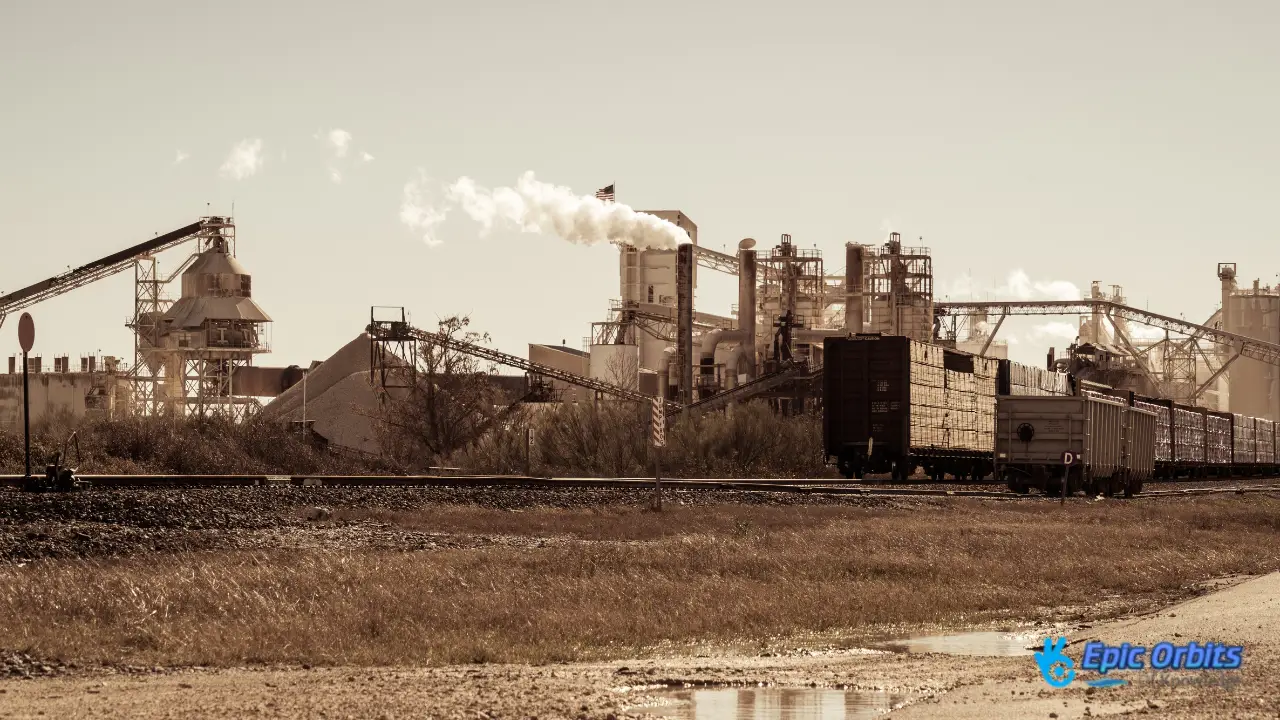
When you consider how the Industrial Revolution changed various aspects of society, it’s evident that it had a significant influence. The introduction of steam power and electricity forever transformed industries. They enabled mass manufacturing and revolutionized the delivery of goods. It was a big step forward in technology that had a tremendous effect on society, opening up new ways for the economy to flourish and develop.
1. Improvements in technology
The Industrial Revolution brought major changes in technology, such as the invention of steam power and electricity. These new ideas made it possible to build factories and machines that could make many things at once, which made work more efficient and productive. As Andrew Carnegie famously stated,
“The man who dies rich like this dies with shame.” This comment shows how complicated industrialization was, as making money frequently hurt people.
- With the advent of steam power, industries could be mechanized, which boosted their output capacity.
- Electricity’s emergence accelerated industrial expansion, enabling more people to use machines.
- These new technologies changed sectors including textiles, mining, and transportation.
2. Effects on Society
People left rural regions and went to cities in pursuit of jobs during the Industrial Revolution. This had a big impact on society as well. The move caused cities to flourish, which brought up new social structures and problems. The shifting work environment led to the rise of new class identities, labor movements, and political The legacy of the Industrial Revolution continues to influence modern life.
k about its legacy. The ideas of childhood, retirement, and the eight-hour workweek came up as ways to address the problems produced by industrialization. The conflict between technological advancement and human well-being, as well as between economic expansion and environmental conservation, still affects your culture.
The Industrial Revolution caused enormous changes in how people lived, worked, and built cities, and these changes still affect society today. As societies continue to change, it’s important to comprehend the effects of industrialization in order to create a better future.
The Effects of World Wars on Modern Civilization
The World Wars had a profound effect on contemporary civilization because they changed the way the world works. After these wars, new world powers rose to prominence, international relations changed, and the way civilizations interact changed completely.
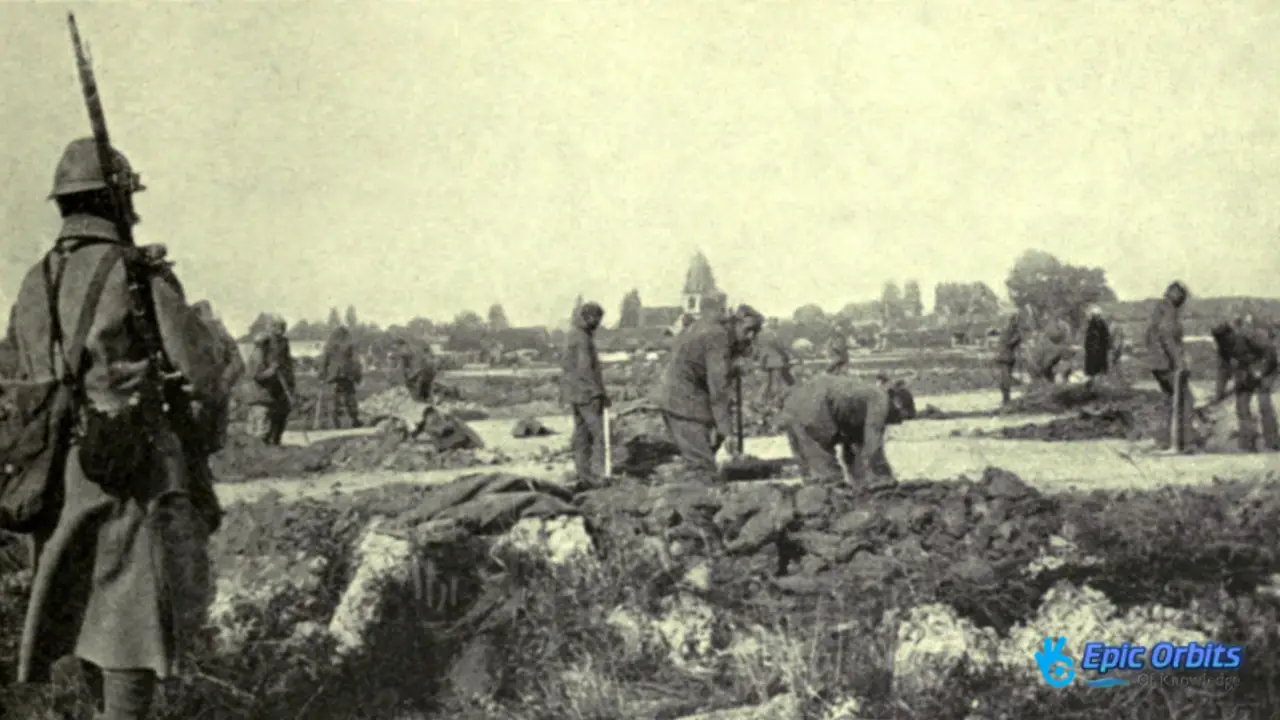
The Globe Wars impacted the globe forever. When you consider this time, it’s evident that the effects of these wars were quite wide-ranging and affected every part of contemporary society.
1. Changing how countries get along with each other
The wars that happened throughout the world in the 20th century changed international relations in a big way. The traditional European nations lost strength, and the United States and the Soviet Union became the two most important players on the new global chessboard. This bipolar global order shaped international relations for decades and changed the way you see the world.
- The Cold War was a fight of ideas between two distinct ways of organizing society. Capitalism and communism were two entirely unique ways for economies and politics to grow.
- Superpower conflict divided the world into “First World,” “Second World,” and “Third World” nations, resulting in international relations and development trends.
- The nuclear arms race established a strange kind of “peace” via mutual assured annihilation. This changed the way major powers handled disputes and made deterrence a resolved idea in current security thought.
The rise of the US and the USSR as superpowers changed the balance of power in the world in a big way. Historian Eric Hobsbawm said, “The world after World War II was a bipolar world, with the United States and the Soviet Union as the two superpowers.”
After World War II, the world was divided into two superpowers: the United States and the Soviet Union.
2. The Rise of Superpowers and Contemporary Geopolitics
At the conclusion of World War II, the United States and the Soviet Union emerged as the world’s two dominant powers, creating a bipolar global order that shaped international relations for decades. During this period, global influence was largely concentrated in the hands of these two superpowers, with the United States promoting capitalism and the Soviet Union advocating communism.
Conflict management relied on strategies such as mutual assured destruction and deterrence, which maintained a tense but stable balance. Today, the world has shifted toward a multipolar order, where influence is distributed among multiple nations, economic systems are more diverse and interconnected through globalization, and conflict management involves navigating the interests of numerous stakeholders. This historical transition continues to impact current geopolitics and the course of global events.
As the world continues to evolve, understanding the impact of the World Wars on modern civilization is crucial. The legacy of these conflicts continues to shape your world, influencing international relations, global power dynamics, and the course of human events.
As the globe continues to change, it’s important to know how the Globe Wars affected current society. The effects of these wars are still felt today, affecting how countries get along with each other, how power is distributed throughout the globe, and the direction of history.
The Age of Information: From Computers to the Web
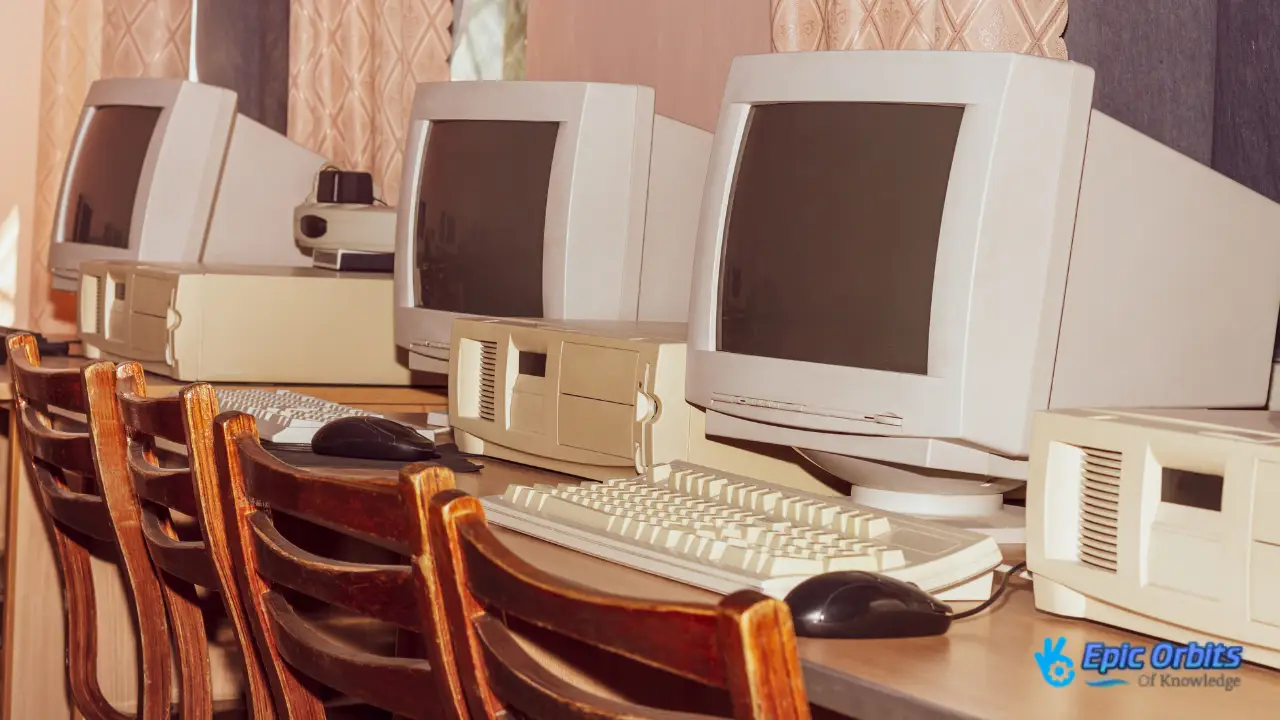
Computers and the internet have advanced significantly, enabling instant access to information. This time has changed how you obtain information, talk to people, make friends, and take part in world events.
1. The Digital Communication Revolution
Digital technology has entirely changed the way people talk to each other. Thanks to the internet, you can now communicate with individuals from all around the world instantly. This change has made it possible for new ways for people to communicate, such as social media sites, online forums, and communities.
Several key milestones have shaped the evolution of digital communication. In 1991, the launch of the World Wide Web made the internet accessible to the general public, opening the door to widespread online connectivity. The debut of Facebook in 2004 transformed how people interact, fundamentally changing social networking. Later, in 2007, the release of the first iPhone brought mobile internet access to the mainstream, allowing users to connect and communicate on the go. These developments collectively paved the way for the digital, connected world we experience today.
2. The Effect of Social Media
In the 21st century, social media has entirely changed the way you talk to people, exchange information, and make friends. Facebook, Twitter, and Instagram have made it easier to communicate but harder to get along. These platforms now mediate your experience of important events, bringing communities together and tearing them apart.
It’s evident that social media isn’t only a way to talk to people; it’s also a big part of how contemporary society and civilization work. The media you consume shapes your worldview, public speaking, and information gathering.
In conclusion, the Information Age has changed a lot about how you live, talk to people, and acquire information. As you continue to navigate this ever-changing digital world, it’s important to understand how these changes will affect you so that you can use them to create a more connected and educated global community.
The Civil Rights Movement: Changing What Equality Means
The civil rights movement was a key part of the continuous fight for equality, as you consider how far we’ve come. It wasn’t enough to change the laws; the movement wanted to change the way people lived and even the basic fabric of society. The effect was felt not only in the US but all across the globe, sparking movements that tried to remedy structural injustices.
The civil rights movement in the United States marked a pivotal moment in modern history, altering people’s perceptions of justice and equality. It wasn’t just one event; it was part of a larger movement throughout the world to recognize and protect human rights. The movement has had an impact on many other movements for freedom and equality throughout the globe, such as the fight against apartheid in South Africa and the Dalit rights movement in India.
1. Changes in the law and in society
The civil rights movement brought profound legal changes that reshaped civil liberties in the United States and influenced other countries. Its efforts to challenge and reform unjust laws set a precedent for future social movements worldwide. For example, the American Civil Rights Movement fought for an end to segregation and the protection of voting rights, inspiring equality movements across the globe.
In South Africa, the anti-apartheid movement successfully campaigned to end apartheid and achieve equal rights, leading to significant democratic reforms. Similarly, India’s Dalit rights movement sought to eliminate caste-based discrimination, promoting social equality and justice.
These movements align with the principles established in the 1948 Universal Declaration of Human Rights, which set a global standard for the fair and equal treatment of all people.
The battle for equality didn’t stop with changes to the law. These ongoing efforts continue to address structural injustices, including the wage gap between men and women, the rights of indigenous people to their land, and the recognition of LGBTQ+ individuals. These ongoing battles challenge civilizations to uphold their stated beliefs and strive for a more equitable world.
“The fight for human rights isn’t about changing governments or policies; it’s about changing how people think and feel.”
2. The Global Battle for Human Rights
Contemporary human rights groups have broadened their scope to include economic, social, cultural, and environmental rights in addition to civil and political rights. The realization that genuine equality necessitates the consideration of all facets of human experience has resulted in a more comprehensive approach to human rights. When you see international pressure put on governments that abuse human rights, you are seeing a fundamental change in human history. The concept that the treatment of a civilization’s population is no longer solely a domestic issue but also a global concern has emerged.
The battle for human rights throughout the globe is proof that civilization and its ideals are constantly changing. It’s evident that the road toward a more fair and just world is still going on when you look at how far we’ve come and how much work there is yet to be done. The civil rights movement and other campaigns for human rights have proved that change is possible, but it takes work and watchfulness.
- The global movement for human rights now advocates for issues such as political freedom and economic fairness.
- Modern human rights groups recognize the complexity of the human experience and strive for a diverse range of rights.
- These movements have had an effect on the law, society, and the continuous fight for a fairer world.
The Environmental Awakening: Realizing What We Do
Your society has grown, but it has done so at a cost to the environment. The first step toward reform is to realize this. Dr. Luke Kemp of the Center for the Study of Existential Risk says that civilizations are complicated systems that may collapse for many reasons, such as environmental damage. This insight shows how important it is to know how your activities affect the environment.
The journey toward greater environmental consciousness has been significant. It all started with important books like Rachel Carson’s Silent Spring, which showed how dangerous pesticides are and started a national conversation about protecting the environment. The discourse has changed over time to include the bigger and more complicated problem of climate change.
The release of Silent Spring in 1962 was a big step forward for environmental awareness. Carson’s work not only raised awareness about the careless use of pesticides but also initiated a wave of climate change, which is a worldwide problem that needs people from all around the world to work together and take action.
“The climate is a common good that belongs to everyone and is meant for everyone.”
The Kyoto Protocol and the Paris Agreement are two big diplomatic endeavors that have come about because people are more conscious of climate change. These accords are the first time that countries have worked together to address a danger to civilization that goes beyond their borders.
Environmental issues have had a big impact on current politics, which has led to the idea of sustainable development as a guiding principle. This idea tries to achieve a balance between economic development, environmental protection, and social justice. This shift alters how society evaluates progress.
The rise of environmental policy is a groundbreaking change in governance because it acknowledges that society must control its actions to protect natural systems.
Carbon taxes, environmental impact assessments, and renewable energy subsidies are all technical policy instruments that bring the actual world into economic and political decisions.
Disagreements over pipeline projects, protecting forests, or emission limits show the persistent conflict between short-term economic goals and long-term environmental health.
As your civilization progresses ahead, the way that the environment The way you incorporate environmental issues into legislation will shape the trajectory of your civilization as it advances. Finding a balance between different interests and adopting a long-term perspective that prioritizes sustainability is a challenging task.
Economic Revolutions: From Mercantilism to Global Capitalism
It’s evident that the economic systems that have shaped your society are significant as you traverse the complexity of contemporary civilization. There have been important events along the path from mercantilism to global capitalism that have changed how civilizations make, share, and use wealth.
1. The Development of Economic Ideas
The first civilizations to use money witnessed the rise of economic systems that helped the social and political elites by giving them power over everything. The economies of civilizations changed as they grew. The switch from mercantilism, which was based on being rich and powerful via trade surpluses and government control, to more open forms of capitalism was a big change.
- As global trade networks grew, people were able to trade commodities, services, and ideas across boundaries. This helped the economy flourish and cultures mix.
- The concentration of wealth in the global economy is due to certain laws, technology, and power dynamics that have made it easy for money to move across borders.
Mercantilism and global capitalism represent two very different economic systems with distinct approaches to wealth and trade. Mercantilism relied on state control, emphasizing trade surpluses and the accumulation of gold and silver, which tended to concentrate wealth among the elite. In contrast, global capitalism is built on free trade, complex global supply chains, and financial markets operating around the clock, creating wealth through international economic activity and offering broader opportunities for economic growth. These differences highlight the shift from a controlled, resource-centered economy to a highly interconnected and dynamic global marketplace.
2. The Growth of Multinational Corporations
The rise of multinational businesses represents a major shift in power, establishing economic organizations that surpass national borders and sometimes compete with governments in their impact. Global supply chains have made it easier and cheaper to acquire items, but they have also made the economy more interdependent.
- Your smartphone is made of parts from several nations and is put together by workers on different continents, all of whom are managed by teams in different time zones.
- Financial markets that work around the clock all around the world are like nerve systems that link economies and send new ideas and crises throughout the world at an unparalleled speed and scale.
The continuous fight to manage a global economic system that has grown faster than the political structures created to oversee it is a fundamental issue for your civilization’s future. To address today’s issues, you must know about these economic revolutions.
Technological Changes That Changed Everything
You live in a time when technology is more than just a tool; it’s a powerful force that changes every part of your existence. Technology is now a big part of your daily life, from how you think to how you work and talk. An evolutionary scientist coined the term “Red Queen Effect” to describe how survival in a constantly changing environment depends on continuous adaptability. This principle is especially important now since technology is changing so quickly.

Modern civilization has been greatly affected by a number of Several technological shocks have greatly affected modern civilization. This technology serves as a gateway that has completely transformed how individuals travel around the globe, communicate with others, gather information, and even how they think and remember things. Biotechnology is also providing people more influence over life than ever before, from gene editing to synthetic biology. The phenomenon raises profound issues about what it means to be human in such a culture that is changing quickly.
- Renewable energy technologies have the ability to change the way humanity uses energy by transitioning from centralized, extractive systems to decentralized, regenerative ones.
- By blurring the boundaries between the real and digital worlds, By blurring the boundaries between the real and digital worlds, virtual and augmented reality are creating new places for people to have experiences. and connect.
As you consider how quickly technology is changing, you face one of the most significant problems of your time: how to use these powerful tools to improve people’s lives while also dealing with the problems they cause for people, communities, and the world. For civilization to survive, you need to be able to change and come up with new ideas that support fairness and sustainability.
“The best way to know what will happen in the future is to make it happen.”
In conclusion, technological disruptions have changed and will continue to change human society. You may strive toward a future where technology continues to change experiences for everyone by recognizing how these developments will affect people and taking steps to mitigate the problems they create.
Conclusion
Our contemporary civilization is not static but rather a living part of human history. We can observe how significant historical events have changed the world we live in now.
History demonstrates that the success or failure of a civilization hinges on its ability to manage its resources, adapt to environmental changes, collaborate effectively, and overcome external challenges. These teachings are essential for dealing with the problems your planet is facing right now, including climate change and running out of resources.
You may learn about the forces that will decide whether your civilization flourishes or falls by looking at how historical events have created your present environment. The future is not predetermined; it is shaped by the choices we collectively make, leveraging our past knowledge to construct more equitable and enduring systems.
The way a civilization uses its resources, comes up with new ideas, and deals with national emergencies are all important variables that shape its future. It will be crucial to use these ideas as you go ahead.
